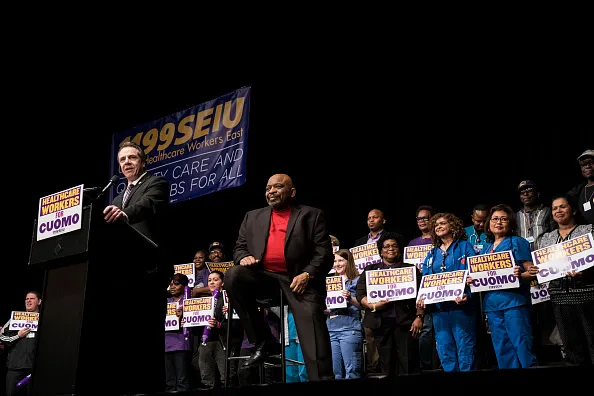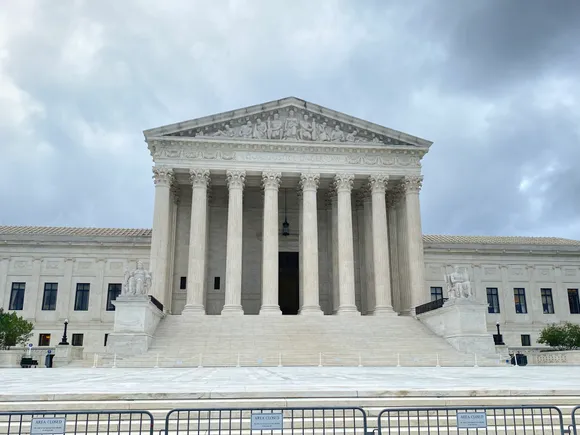The next U.S. Supreme Court term begins today, and with it comes a fresh new slate of cases including a few that touch upon labor and employment law issues.
One of these is Stanley v. City of Sanford, which involves a former Florida firefighter who retired in 2018 due to complications associated with a Parkinson’s disease diagnosis. Her benefits package included a retirement health insurance subsidy that covered the cost of health insurance for qualifying retirees who retired early due to disability until they reached age 65.
The firefighter began her career in 1999, but four years later in 2003, the City of Sanford changed its policy. Specifically, it limited the length of time that employees who retired early due to disability could receive the subsidy. Following that change, employees like the petitioner in Stanley would only receive the benefit until they received Medicare benefits or until 24 months had elapsed from the date of retirement, whichever came first.
Per the writ of certiorari, the city’s policy change discriminated against the firefighter on the basis of her disability, violating the Americans with Disabilities Act. However, both the district court and the 11th U.S. Circuit Court of Appeals sided with Sanford, holding that because the petitioner is a disabled former employee, she is not a “qualified individual” as defined by the ADA and therefore lacks standing to sue.
Oral argument in Stanley has not yet been scheduled at time of publication, but the case is one to watch because it touches upon a core federal anti-discrimination law. HR Dive spoke to Deepak Gupta, founding principal at law firm Gupta Wessler LLP and counsel for the firefighter, for more perspective on the case’s implications.
A case in two arguments
According to Gupta, the petitioner in Stanley makes two arguments. The first is that she is a qualified individual under the ADA’s meaning. That assertion draws from decisions by the 2nd and 3rd circuits holding that an employee does not lose the ability to sue their employer for discriminatory practices because they no longer hold a specific job or seek to hold that job.
Deepak Gupta, founding principal at Gupta Wessler LLP
Permission granted by Gupta Wessler LLP
A circuit split has formed on that question, however, with the 11th Circuit joining the 6th, 7th and 9th circuits in holding that because a former employee no longer holds or seeks to hold a job, she loses her ability to sue for discrimination that occurs post-employment.
Gupta said that the petitioner’s second argument concerns the Lilly Ledbetter Fair Pay Act, a 2009 law that clarified when an employee may bring challenges to a discriminatory compensation practice.
The law extended this timeframe to include each time an individual is affected by the application of the discriminatory practice through the payment of wages, benefits or other compensation. It extended the same provisions to compensation discrimination claims under the ADA.
The Ledbetter Act argument would not require the Supreme Court to decide the question of who is a qualified individual under the ADA, Gupta said, because the Ledbetter Act’s provision essentially allows an employee to sue at the time that the discrimination occurs.
“Nobody really disputes that our client was a qualified individual at the time she was employed as a firefighter,” he added. “And that’s when the city adopted its discriminatory policy.”
In its response brief, Sanford argued that the Ledbetter Act is “irrelevant” to the qualified individual analysis and “merely provides” that the statute of limitations for filing a charge with the U.S. Equal Employment Opportunity Commission alleging pay discrimination resets with each paycheck affected by the alleged discrimination. “If a plaintiff is not a ‘qualified individual’ under Title I [of the ADA], the Ledbetter Act does not give rise to a cause of action where none exists.”
The city also said it disputes that the petitioner in Sanford was treated unfairly in comparison to similarly situated employees with the same amount of service time who were not disabled.
“Nondisabled retirees with only 20 years of service also did not receive the subsidy to age 65, no matter how unfortunate their reasons for retiring early,” Sanford said. “In fact, Petitioner was treated better than non-disabled retirees with the same amount of service because while they received no subsidy at all, Petitioner received the subsidy for 24 months out of compassion for her disability.”
Interactions with other employment laws
Though Stanley is primarily concerned with coverage under the ADA, it could also have implications for other employment laws depending on how the court rules, Gupta said.
The petitioner specifically cited the court’s 1997 decision in Robinson v. Shell Oil Co., in which a unanimous court led by Justice Clarence Thomas held that former employees could sue under Title VII. A key question in Stanley, according to Gupta, is whether the ADA’s statute differs from Title VII on this point, and what kind of statutory answers the court would require to reach a conclusion either way.
“The question of whether a statute reaches current employees or former employees is an important coverage question of every employment law,” he said.
Observers of the court’s recent terms are likely to note that the justices have sided with employees in numerous other disputes, sometimes unanimously. That was the case in 2023’s Groff v. DeJoy, in which the court overturned prior precedent on the undue hardship in the context of religious accommodation requests under Title VII, as well as this year’s Bissonnette v. LePage Bakeries, in which it sided with transportation workers in a Federal Arbitration Act dispute.
“This is a much more textual court than the Supreme Court was more than 10 years ago,” Gupta said. “In our experience, we can prevail, and consistently have prevailed, where we have strong textual arguments on behalf of workers.”
But it will be up to advocates for both the firefighter and Sanford to persuade the court on whether the ADA’s coverage applies to former employees. Either way, the justices’ decision would have implications for employers and employees throughout the country, Gupta said.
“What the court is being asked to decide is a pure question of law that will affect all sorts of people who find themselves no longer working for their former employer,” he added.






Leave a Reply